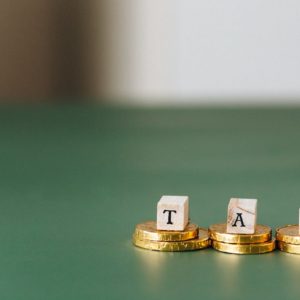HomeBlogFinancial InsightsWhat is a qualified property?
Table of Contents
Tangible Nature
Qualified property, to be eligible for tax benefits, must possess tangibility—having a physical presence and being touchable. Machinery, equipment, vehicles, furniture, and specific real property fall under this category, emphasizing the importance of physical assets actively used in business operations.
In essence, the tangible nature of qualified property ensures that businesses can only claim tax benefits for physical assets actively used in their operations. This criterion encourages investments in equipment and facilities that directly contribute to the production of income.
Depreciation Eligibility
Qualified property, being subject to depreciation, undergoes the gradual allocation of its cost over its useful life. This systematic approach reflects the gradual wear and tear of the property, providing businesses with a fair and consistent method of cost recovery.
The depreciation eligibility of qualified property aligns with the principle of spreading the cost of an asset over its useful life. This allows businesses to recover the cost of assets gradually, acknowledging their decreasing value over time.
Bonus Depreciation
The Tax Cuts and Jobs Act (TCJA) introduced bonus depreciation, a provision allowing businesses to deduct a significant portion of the cost of qualified property in the year it is placed in service. This initiative serves as a powerful incentive for businesses to accelerate their capital investments.
Bonus depreciation provides a substantial upfront deduction, stimulating economic growth and enhancing the competitiveness of U.S. businesses through increased capital spending. It encourages businesses to invest in new equipment and assets, fostering innovation and modernization.
Section 179 Expensing
Section 179 of the Internal Revenue Code permits businesses to expense the cost of certain qualified property in the year it is placed in service. This is especially beneficial for small businesses making substantial equipment purchases, providing a streamlined approach for immediate deductions.
Section 179 expensing offers a straightforward method for small businesses to deduct the cost of qualified property immediately. This provision aims to alleviate the financial burden on smaller enterprises, promoting growth and efficiency in their operations.
Eligibility Criteria
The specific criteria for property to be considered “qualified” may vary based on changes in tax laws and regulations. Factors such as the asset’s class life, the date it was placed in service, and its specific use may influence eligibility.
The ever-evolving nature of tax laws emphasizes the importance of staying informed about the eligibility criteria for qualified property. Businesses need to adapt to changes in regulations to ensure that their investments align with the evolving definition of “qualified,” maximizing available tax benefits.
Non-Qualified Property
Certain types of property may not qualify for bonus depreciation or Section 179 expensing. Examples include property used predominantly outside the United States, property used by certain tax-exempt organizations, and certain types of real property.
Recognizing non-qualified property is crucial to avoid potential pitfalls in tax planning. Understanding the limitations and exclusions helps businesses make informed decisions regarding their investments, ensuring compliance with tax regulations while optimizing available benefits.
Stay informed, stay compliant.




